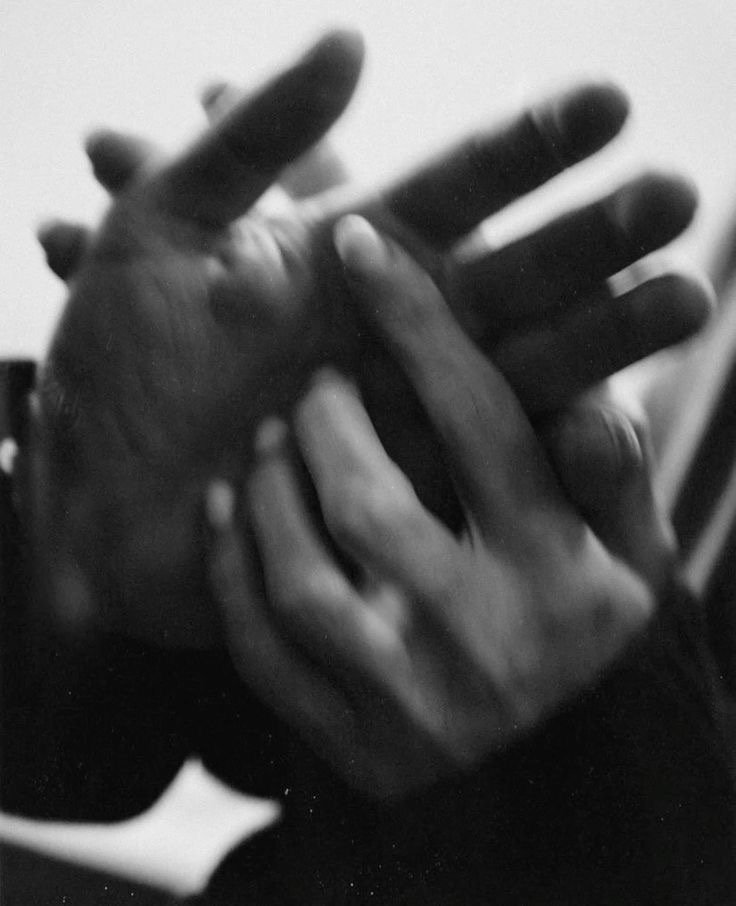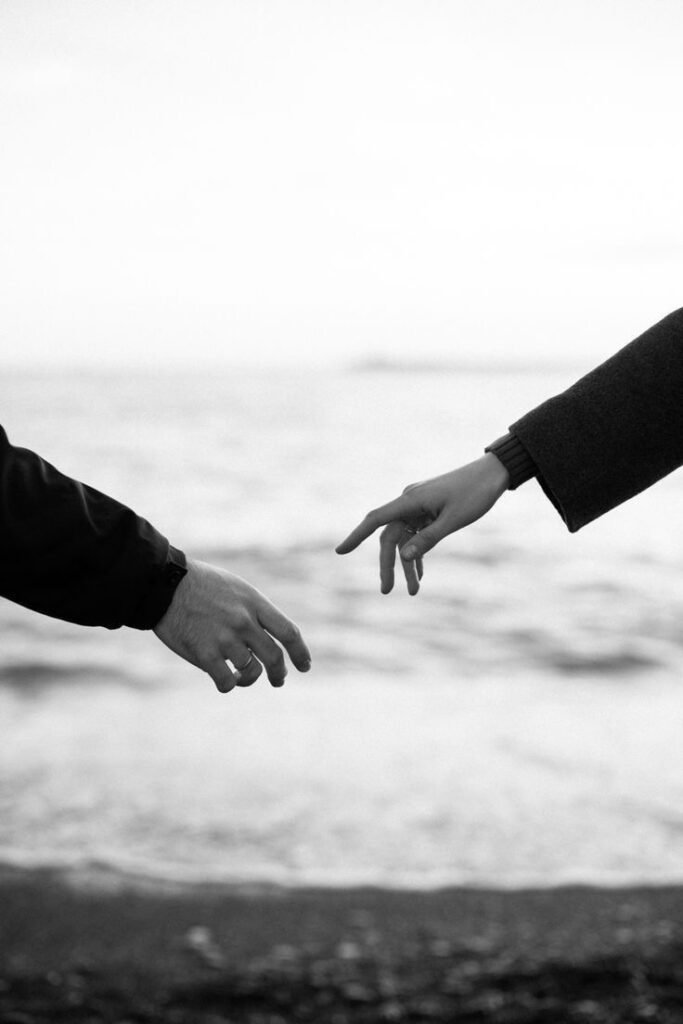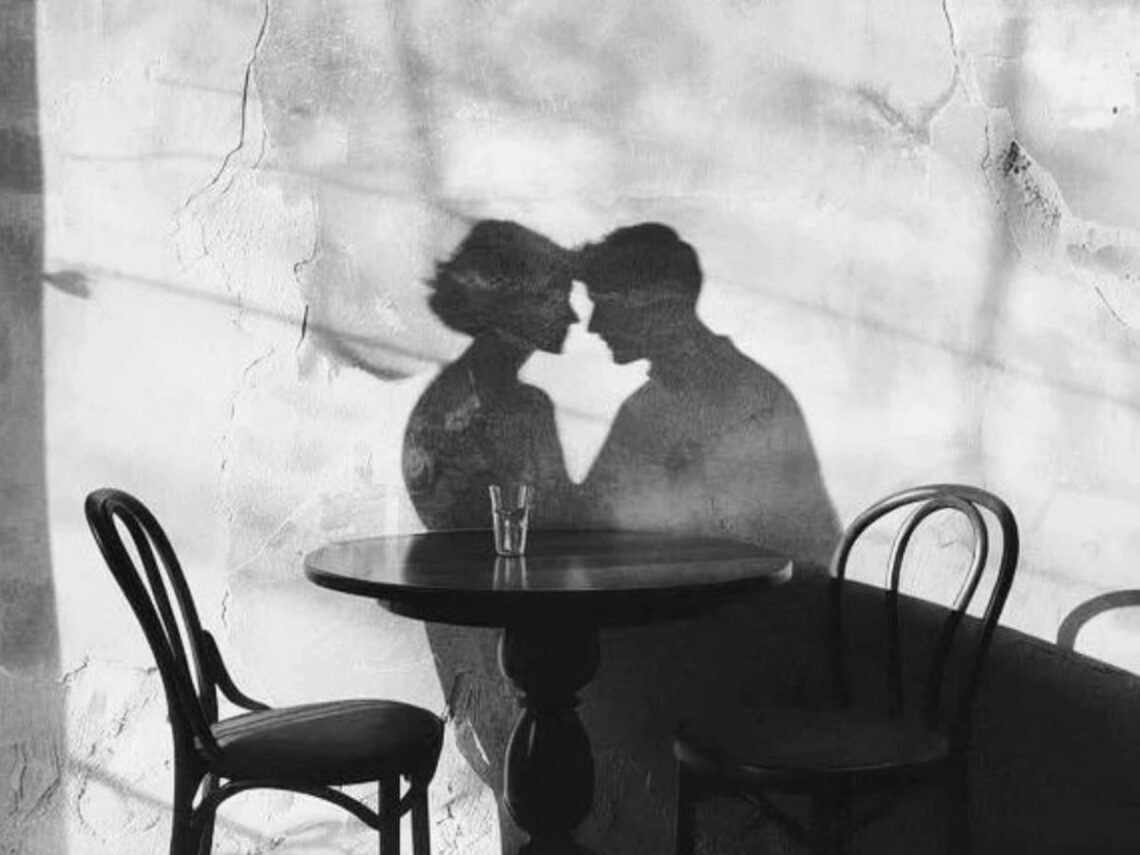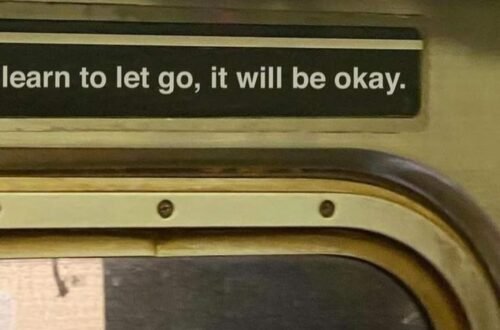I’m not sugar-coating this one. Breakups suck.
During one of the most painful breakups of my life, my partner told me: “You deserve someone who can give you what you deserve.”
It seems like such an obvious statement, right? Like no shit, Sherlock. Next, you’re going to tell me that the sky is blue. Of course I deserve someone who can give me what I deserve–I wanted that someone to be you. The quiet part of that sentence–the one that started as a whisper and later screamed itself into every corner of my being–was: “And I am not that someone.” The unspoken, devastating truth he didn’t have the courage (or cruelty) to say out loud.
And that’s the cruel thing about relationships: even when it ends gently, it still rips.
The thing about breakups is that they’re a universal ache. Like birth, death, taxes, and awkward silences. You will, at some point either break a heart or have yours shattered into a million shimmering pieces. And if you somehow live to be 100 years old without ever experiencing that kind of grief, congratulations–you are either a monk or a sociopath.
I’m So Sorry for Your Loss

Breakups of any kind feel like death. The death of a relationship. The death of a future you both envisioned. You lose the person, yes. But you also lose the version of yourself who only existed in their orbit. Their weekend routines, their laugh. The nicknames, the shared Google calendar, the language only the two of you spoke. Gone.
It’s a strange kind of mourning–because nobody died, and yet, everything did.
And when it’s over, it ends loudly–even if it feels like it happens in a vacuum. It’s the shattering of something you thought was unbreakable. A gut-punch from the universe, even if you saw it coming.
There’s a particular kind of heartbreak that feels as though someone let the air out of your reality and now it’s deflating. Like you’re walking through the set of your old life, but the cameras stopped rolling. The studio did not renew for a second season.
No one prepares you for how much identity gets braided into the relationships we foster.
You hand over so many pieces of yourself in the name of intimacy–gently, almost gladly–and when it ends, you’re left holding the emptiness where they used to be, wondering if those pieces of yourself are gone forever. You’re standing in the mirror, looking at someone who no longer remembers what their life looked like before them.
Their favorite meals became yours. Their hobbies, their habits (good and bad) grew around you like ivy, slowly creeping into your life around the walls of you. They become fused into your bloodstream, as quietly and thoroughly as grief does.
When it ends, you’re not just grieving them. You’re also grieving you. And in that gaping silence where their texts used to live, where their hand used to reach for yours–you start to hear the ache of your own unmet needs echoing back.
There’s this moment–maybe it happens at 2 a.m. on a sleepless Tuesday night or on your morning commute–when it all feels like too much. You think: I will never feel normal again.
And in some ways, you’re right. You won’t go back to who you were. You will never be that person again. Let that sit with you for a moment. Because maybe that’s not a tragedy. Maybe that’s the whole point.
Reflect on who you were in that relationship. Maybe you could’ve done things differently, better, smarter. And maybe that’s true. But the hard truth is you can’t go back and make retroactive repairs to a home that has a crumbling foundation. What is done, is done.
But the cruel, miraculous thing is you’re not meant to go back.
Here’s what no one tells you: the ending isn’t the punishment. Quite the opposite: the ending is the invitation.
An invitation–addressed to the owner of the home you’ve slowly abandoned in hopes of moving in with someone else–to return to yourself. To the version of you who was too bright, too bold, too wild, too intuitive before “love” taught you to dial it down. A call asking you if you remember what it’s like to choose–and not to be chosen.
Where the World Stopped

Much like death, the days following a breakup feel wrong. What do you mean the world hasn’t stopped in its tracks? What do you mean I have to go to work and pretend everything is fine?
You’re technically alive, sure–but barely. You’re going through the motions, hoping and praying you can make it to 5 p.m. or whenever your shift ends so you can emotionally collapse (or as the kids say, crash out) in your car.
It feels as if you’re existing in the void. A lifeless liminal space between what was and what will be. Where joy feels unwelcome and time moves like honey underwater. Where colors look dimmer and sounds echo too loudly. Where you begin to haunt your own life.
In this in-between, everything hurts.
Their name in someone else’s mouth. A scent that reminds you of them. Seeing them active online or on social media and pretending it doesn’t split you open. (Pro tip: do not watch their Instagram stories.)
And of course, nothing that anyone says brings any comfort. Friends and family will swarm in, ready to send metaphorical casseroles and words to give you peace during this challenging time. They offer wine and advice, saying things like “you dodged a bullet” or “everything happens for a reason.”
But they don’t get it! Because of course they don’t, you were the one in the relationship. You didn’t want to dodge the bullet. You would’ve taken it gladly. Or at least–at the very least– be the reason it never fired.
Our grief, anger and pain subconsciously elevates this person to an untouchable pedestal of sainthood, and suddenly only the good times are now the feature film, playing back to back showings in the movie theater inside your mind. A movie you didn’t buy tickets to but are forced to critic.
Grab some popcorn and enjoy the show. You’ll be watching it until you know every line, even if you didn’t like the ending.
The Myth of Closure

There’s a particular kind of desperation that comes after the dust settles–a clawing, aching need to understand.
You stay up at night, tossing and turning, unable to quiet the nagging voice in your head asking the age-old questions: Why didn’t they fight for me? What changed? Was any of this even real?
Because how? How could someone I held so close, cared so deeply for, loved–how could someone I loved (if you believe in that sorta thing) do this to me?
No, you think, there has to be another way.
Closure becomes the thing you chase like it’s your old life’s last lifeline. You think, if I could just have one more conversation. One final explanation. One neat ending to tuck all this into. Then I’ll be okay. Then, I’ll be able to officially move on.
You want a thesis statement for the pain. Something clear and concise to summarize the failures and how much it will cost to rebuild. You ask all these questions with a particular response to come to the rescue.
I hate to break it to you, but closure so rarely arrives with the answers you want.
If you’re lucky, your ex will entertain a polite text message, or they’ll indulge you in a meet-up to discuss the aftermath over some lattes in a public coffee house. Maybe it will be cold yet cordial. Maybe they’ll say, “It could work out somewhere down the line. Maybe in the future.” Maybe, maybe, maybe.
Or, its texts left on read. Memories stuck on loop. A casual Instagram story that guts you more than anything you could’ve ever anticipated.
Sometimes there is no last chapter. No apology. No insight. Just a person who stopped showing up, and a life that demands you keep going anyway. A sudden hole in your life where there wasn’t one. That’s when the real heartbreak happens–not when they leave but when you realize they’re not coming back to explain why.
So instead, you start explaining things to yourself.
You start remembering the moments you silenced your gut to preserve the peace. The nights you over-functioned just to feel chosen and safe. The little ways you bent yourself out of shape to stay loveable in their eyes.
We imagine closure as something only they can give us. But really, it’s something we have to give ourselves, one hard truth at a time.
Let me tell you something: good or bad, nothing lasts forever. It’s a mantra that keeps me up at night or helps me fall fast asleep, depending on the day. But this feeling–of someone holding all the energetic power of your head as you seek answers you may never get–can’t last forever. You can decide when enough is enough.
Maybe you will get the answers to your questions. Maybe it’ll happen tomorrow. Or a week after the break up or in six months.
Or maybe, you’ll never know.
Every story has a beginning, middle and end. But not all stories are meant to last. Some are meant to break you open just enough to unearth the parts you buried in order to be chosen. Some are meant to highlight areas of your life you neglected. Some are meant to teach you.
The Aftermath of Letting Go

Slowly, beneath the rubble of the grief and grit, something begins to unfurl: the part no one will ever clap for. The surviving.
You wake up with a chest heavy with dread for the day you haven’t even started yet and brush your teeth anyway. Eating the same dinner you used to enjoy with them…but now it’s just you. No fanfare. No glow-up. Just the quiet dignity of trying again.
It’s not pretty at first. It’s awkward. Lonely. It’s tossing old love letters and cards…only to desperately fish them out of the trash. It’s deleting their number and memorizing it anyway. It’s seeing their face in a crowd, in the blur of a stranger on the street. Your heart flutters momentarily, and you think, “Oh my gosh, that’s them. How do I look?” Only to realize it’s not them. Just a stranger who resembles the person who once hung the moon for you.
But with time–and time is the only real medicine–you start coming back home to yourself. I’m sorry. I know that’s not what you want to hear, but unfortunately it is true.
You don’t become a better version of yourself overnight. You’ve become someone who knows what it means to lose something deeply–and still live.
Maybe one day you’ll laugh again. Maybe one day you’ll love again. Maybe. Maybe. Maybe.
You start doing the things they hated. The activities you never got to share together. You reclaim the corners of your life that once belonged to an ‘us’ and make them yours again. And for a moment, life is worth living again. You think maybe you’ve made it out of the woods.
Then, something reminds you of what you lost. A song, a person, a smell. And just like that, you’re back in it.
Because healing is always one step forward, followed by three steps back (thank you, Olivia Rodrigo). It circles back, folds in on itself, reopens, repeats. It’s a never-ending, deeply human journey of remembering who you are—and unlearning the version of you shaped by someone else’s absence.
If you have resonated with any of this, all I can say is: I’m so sorry. My arms are engulfing you in a hug full of understanding and empathy. None of the words I can say or write will make any of it better, except for these six: I know exactly how you feel.
Feel it. Immerse yourself in the pain, the anguish and sorrow of losing someone you love. You must feel it. It is your sacred duty as a human who wishes to love and be loved in return. This was the risk.
And one day—maybe while you’re driving, or laughing with a friend, or brushing your teeth—you forget. You forget about them, momentarily. For a millisecond, your brain and your body completely forgot their existence and what the pain of no longer being in their life felt like.
Maybe one day, you’ll realize you’ve become the person who can give you what you deserve.
Not because you’re healed. Not because it doesn’t hurt anymore. But because you’ve survived the kind of heartbreak that once made you believe you wouldn’t.
When this ‘one day’ comes, the next chapter of your life begins. Trust you will arrive there.






2 Comments on “The Anatomy of a Breakup”